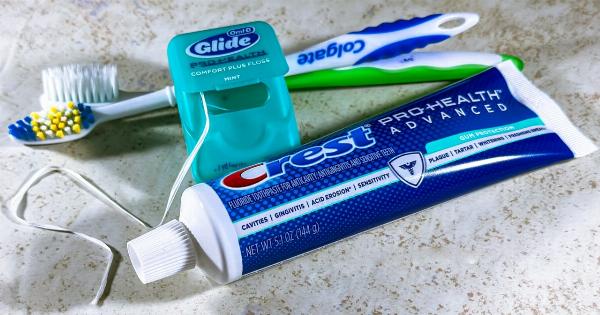Sunscreen and toothpaste are common household products that most people use on a daily basis. They are considered essential for maintaining good skin health and oral hygiene.
However, recent studies have raised concerns about the potential negative effects of these seemingly harmless products on fertility. In this article, we will delve into the research and explore whether sunscreen and toothpaste can indeed be making you infertile.
Sunscreen and Infertility
Over the years, sunscreen has become an integral part of our daily skincare routine. It protects our skin from harmful ultraviolet (UV) rays, which can lead to skin cancer and premature aging.
However, some studies suggest that certain chemical ingredients found in sunscreen may have adverse effects on reproductive health.
A study published in the Journal of Endocrinology and Metabolism found a correlation between sunscreen usage and decreased sperm count in men.
The researchers discovered that common sunscreen ingredients, such as oxybenzone and avobenzone, can disrupt hormone production and function in the body, potentially affecting sperm quality and fertility.
Furthermore, a study conducted by researchers at the National Institutes of Health (NIH) revealed a link between female infertility and sunscreen usage.
The study found that women who used sunscreen frequently had a higher prevalence of menstrual irregularities and longer time to conceive compared to those who did not use sunscreen regularly.
Toothpaste and Infertility
Many toothpaste brands contain an ingredient called triclosan, which is known for its antibacterial properties. However, triclosan has also been implicated in hormone disruption and negative effects on fertility.
A study published in the Journal of Reproductive Toxicology demonstrated that triclosan exposure in mice led to impaired fertility in both males and females.
The researchers observed reduced sperm motility and altered hormone levels in male mice, while female mice exhibited difficulties in achieving pregnancy.
Another study conducted by the University of California, Davis found a correlation between triclosan levels in urine and decreased sperm quality in humans.
The researchers analyzed urine samples from men and found that higher triclosan concentrations were associated with decreased sperm viability and motility.
Endocrine Disruption and Fertility
The potential mechanism behind the infertility-inducing effects of sunscreen and toothpaste lies in their ability to disrupt the endocrine system.
Both products contain chemicals that can mimic or interfere with hormone activity in the body, leading to hormonal imbalances and reproductive issues.
The endocrine system is responsible for regulating the production and release of hormones, which play a crucial role in fertility.
Hormones such as estrogen, progesterone, and testosterone are essential for maintaining reproductive health in both males and females.
Exposure to endocrine-disrupting chemicals (EDCs) found in sunscreen and toothpaste can disturb the delicate balance of hormones, negatively impacting fertility.
EDCs can interfere with hormone synthesis, receptor binding, and transportation, leading to reproductive dysfunction.
Protecting Your Fertility
While the research raises valid concerns about the potential negative effects of sunscreen and toothpaste on fertility, it is important to note that more studies are required to establish a concrete link.
In the meantime, there are steps you can take to protect your fertility:.
1. Choose Alternative Products
Consider using sunscreen and toothpaste brands that are specifically labeled as “EDC-free” or “hormone-free.” These products typically avoid using chemicals known to disrupt the endocrine system.
2. Natural Sun Protection
If you are concerned about the potential risks of sunscreen, explore alternative methods of sun protection.
Wearing protective clothing, seeking shade, and using natural sun blockers like zinc oxide can help minimize UV exposure without relying solely on sunscreen.
3. Proper Oral Hygiene
Maintaining good oral health is essential, but if you’re worried about triclosan in toothpaste, switch to natural alternatives or consult your dentist for recommendations.
4. Consult a Healthcare Professional
If you’re planning to conceive or have concerns about your fertility, it’s best to consult with a healthcare professional. They can provide personalized advice and guide you on steps to optimize your reproductive health.
Conclusion
While further research is needed to confirm the direct impact of sunscreen and toothpaste on fertility, it is crucial to be aware of the potential risks associated with certain ingredients found in these products.
By making informed choices and taking proactive steps, you can protect your reproductive health while still enjoying the benefits of sunscreen and maintaining excellent oral hygiene.






























